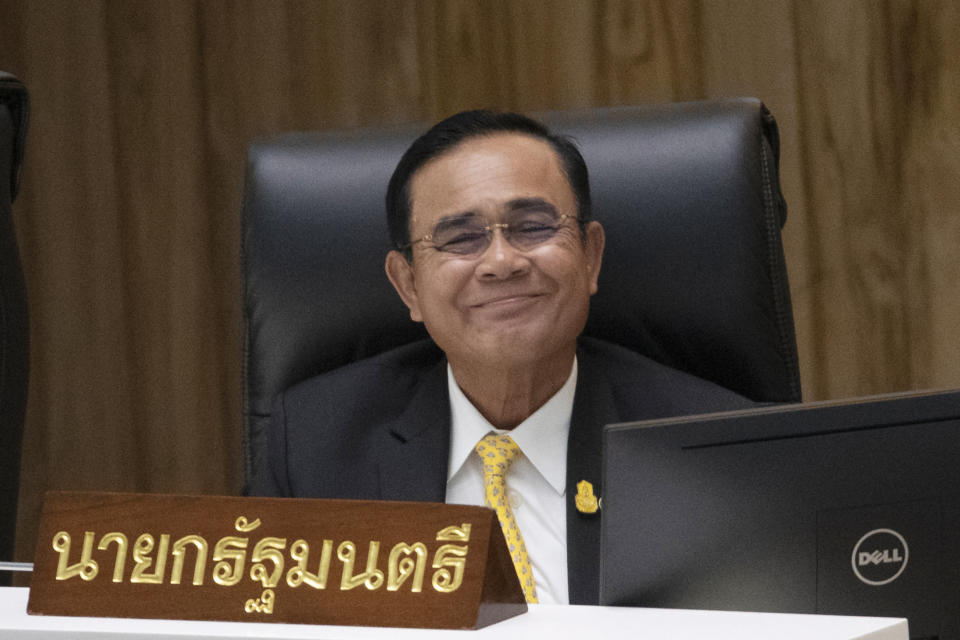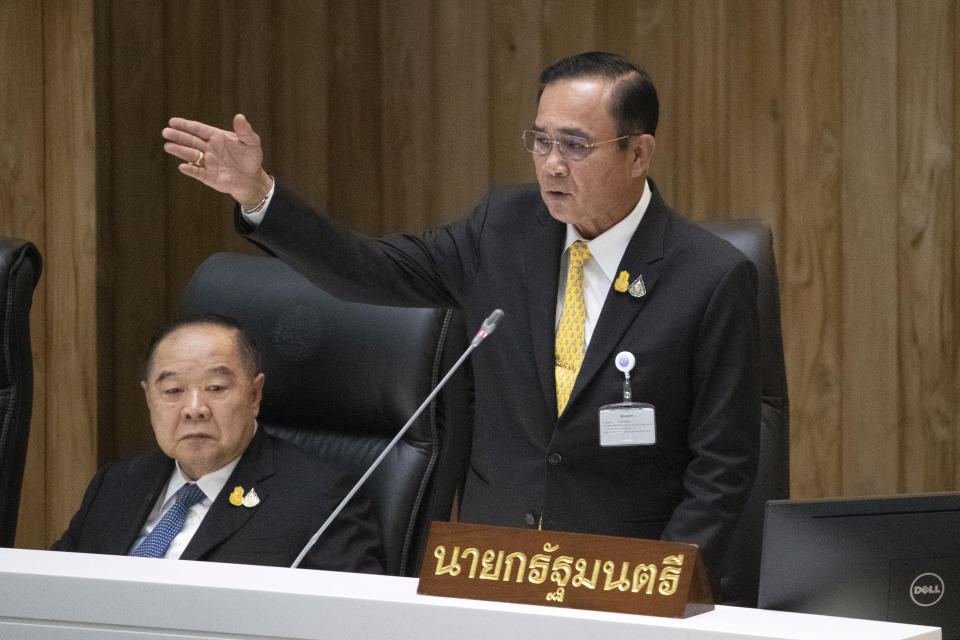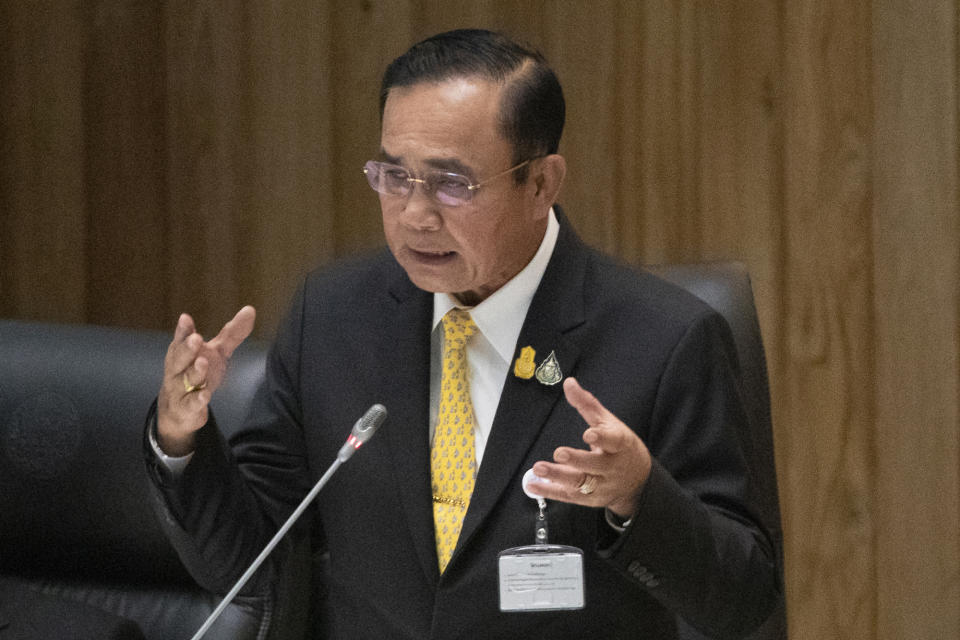Thai leader dodges opposition questions over flawed oath
BANGKOK (AP) — Thailand's prime minister came under fire Wednesday in parliamentary debate for having omitted a key phrase when taking his oath of office in July, but dodged opposition demands that he explain why he left it out.
Prayuth Chan-ocha's failure to include a sentence swearing allegiance to the constitution when he led his Cabinet in taking the oath of office in front of King Maha Vajiralongkorn has raised questions about the legitimacy of his government.
The opposition demanded that Prayuth resign in addition to explaining why he did not recite the full oath.
Prayuth attended much of Wednesday's debate, but when he spoke, he addressed only budget matters and not the oath-taking.
He told reporters afterward that it was his right not to respond to the oath question.
Deputy Prime Minister Wissanu Krea-ngam, the government's chief legal expert, responded to the opposition by saying the king had acknowledged the oath, which indicated it was valid because the matter was between the Cabinet and the monarch.
He mentioned a royal message, released in late August but dated the day of the oath-taking, encouraging the Cabinet ministers to perform their duties according to the oath they swore. The message, he indicated, was a sign of royal approval.
His statement closely echoed a statement from the Constitutional Court, which earlier this month was asked to rule on complaints forwarded by the state ombudsman from two citizens who charged that Prayuth's failure to pledge allegiance to the constitution was a breach of the charter, which requires the full oath.
The court, however, said it lacked jurisdiction because the oath was a matter between the executive branch and the king, and also mentioned the royal message of encouragement.
Invoking the king's support provides a political shield because the monarchy is treated as an untouchable institution in Thailand. A tough lese majeste law provides penalties of up to 15 years in prison for insulting the royal family.
The opposition nevertheless tried to press its contention that Prayuth had failed to carry out his duty properly.
Piyabutr Saengkanokkul, a prominent member of the opposition Future Forward Party, said Prayuth should resign "to show political responsibility for the matter of incomplete oath recitation, to uphold the constitution of the Kingdom of Thailand, to uphold the democratic system under the king, and to allow the Kingdom of Thailand to have a leader with dignity who is an honor to the country, to the head of the state, and to its people."
Prayuth won another challenge Wednesday when the Constitutional Court ruled that he was not a state official when he took office as prime minister.
Prayuth, then army commander, led a military coup that overthrew an elected government in 2014. He then led the junta that replaced it and later took the position of prime minister.
State officials are not allowed under the law to concurrently serve as prime minister.
Prayuth became prime minister again after a general election in March this year that was held under laws the military regime wrote to favor its political allies.



